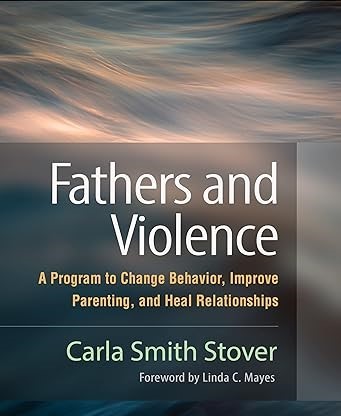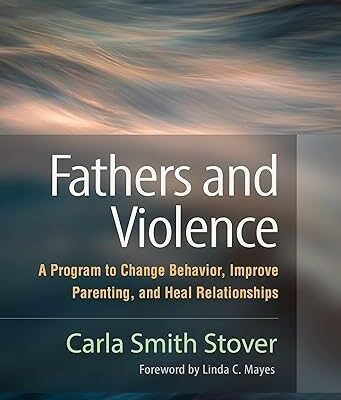Key topics
Court and law
FAQs
Attending a Child Welfare Hearing
Parents who are involved in a family court case should always be allowed to attend Child Welfare Hearings unless the Sheriff has decided that this should not happen. Ordinary Cause Rule 33.22A (5) states that “All parties (including a child who has indicated his wish to attend) shall, except on cause shown, attend the Child Welfare Hearing personally.”
This was not possible in the early stage of lockdown due to restrictions in the telephone conferences used to conduct child welfare hearings, but now that all sheriff courts are using Webex video conferencing there should not be any problems in parents attending. In our response to the recent consultation on future online and face-to-face court hearings we stressed that family case court hearings should all return to face-to-face in court unless the hearing is only to conduct procedural business.
Do your partner’s earnings get taken into account in a legal aid application
Legal Aid for Family Law cases looks at the financial status of the applicant, or the applicant and their partner if they share a home together.
If an applicant lives in their own home without a live-in partner, they are treated as an individual.
If the applicant and their partner live in separate homes, then the partner’s status would generally be ignored. Evidence of separate homes might include separate Council Tax and utility bills at their separate addresses. This does not prevent either the partner or the applicant staying over at each other’s homes. The test is more to do with the presence and maintenance of separate homes.
If they share a home, then both the applicant and their partner’s financials would be pooled.
If they live separately, but already have joint assets &/or income, then the applicant’s share of these (where relevant) should be disclosed for their solicitor and SLAB to consider.
The Scottish Legal Aid Board Calculator is here also see more legal aid information here.
How does family law work in England and Wales?
This handbook was prepared to describe how public and private family law cases are handled in England, Wales and Scotland. It’s a useful guide to the different systems, although you should also check for any changes which have taken place since it was published in 2018.
Can one parent stop a child being vaccinated?
Some types of child vaccination such as MMR have attracted opposition, and this is also happening with Coronavirus vaccines for children. If parents don’t agree whether a child should be vaccinated, the matter can be raised in court. The matter becomes more complicated if only the mother has parental rights and responsibilities or if a child is in care of the local authority. A recent English court judgement endorses the wisdom and efficacy of vaccination and places the onus on the parent who opposes vaccination to raise court action to stop the vaccination – see this roundup article for more background. A more recent English judgment applies this to Covid vaccination
My case is due in court soon: will it be heard?
Scottish courts are only hearing urgent child protection cases at the moment, so almost all family court hearings are paused (sisted) or postponed (continued). In each part of Scotland all cases have been moved to a few key courts – details here.
How can children give their views on contact issues?
At present there are various ways for obtaining children’s views during a dispute about contact. The court can issue an form-f09 for children to indicate their views. The sheriff can talk to a child or order a Child Welfare Reporter to prepare a report to court. The legislation that is being currently considered by the Scottish Parliament will include consideration of a range of other ways in which children can give their views and also whether feedback can be given to them about what the court decides. Shared Parenting Scotland considers that it is also very important to let the child know that their views are important but will not be the deciding factor, and also that any person who is obtaining children’s views should properly trained. If the Scottish Parliament also incorporates the UN Convention on the Rights of the Child into Scottish law there may be further changes.
Should I represent myself in court?
We always advise people that it is best to have a lawyer if you are taking court, but we know that some people either can’t afford representation or have had such poor legal support in the past that they end up conducting their own case in court. Our Guide will help you LINK and we may also be able to link you with a lay supporter LINK. It is also worth trying to find a lawyer who can comment on what you are putting on the court papers before submitting them. There will be a cost for this service, but it costs far less than full representation and can help you avoid making errors in the way you present your case.
Can I stop my ex-partner from receiving legal aid?
When civil legal aid is applied for to take a case to court the Legal Aid Board writes to that person’s opponent to tell that that legal aid is being considered. This letter will include a copy of the applicants statement about the case. You can write to the Legal Aid board giving reasons why you oppose legal aid. This can either challenge whether they are financially entitled to receive legal aid or say that it is unreasonable for public money to be spent on the case. For example, you could say that an offer to take part in family mediation has not been accepted. Further information is available on the Legal Aid Board site.
Am I eligible for legal aid?
If your family law case is being conducted in Scotland you can apply for legal aid, even if you do not live in Scotland. You will need to show that you can’t afford to pay for legal help yourself, and that the problem is serious. Legal aid is means tested, so you may be asked to pay some of the cost yourself. See the Scottish Legal Aid Board SLAB) web site to assess whether you will qualify on financial grounds. Two types of legal aid are available: advice and assistance to pay for the initial help and legal correspondence, and civil legal aid if the case has to go to court. You have to use a solicitor, and only some law firms will make legal aid applications – see the SLAB list.
Why is my lawyer not answering my enquiries?
Remember that your lawyer is undertaking a professional service for you and try to keep your enquiries to the practical aspects of your case. It is very likely that you also need emotional support and reassurance if you are experiencing a separation and not seeing your children, but try to avoid using your lawyer for this more than is absolutely necessary. Your legal bill will increase substantially if you ask too many questions. If you are receiving legal aid remember that legal aid rates are not generous, and lawyers who are being paid through legal aid may be restricting what they do to the most important aspects of the case.
Bearing in mind the above advice, do take action if your lawyer is not answering key legal questions – see Complaints against lawyers LINK
How do I find a family lawyer?
Both the Law Society and Scottish Legal Aid Board (SLAB) web sites include lists of lawyers who specialise in child contact cases, although the SLAB list only covers law firms which do legally aided work. The Family Law Association web site can be searched to find their members by location or speciality. Shared Parenting Scotland does not give any recommendations, but we can provide a list of the lawyers who attend our local group meetings.
What can be done to counter false allegations in court cases?
In order to defend yourself against an allegation which you dispute, our first advice is to remain calm and avoid doing anything which could be used against you. Because of the adversarial nature of child contact court cases, many allegations are made in order to criticise the other parent. The court will always want to see proof rather than just unsupported statements, and it will consider whether any statements are credible.
Can denial of contact be considered as coercive control?
The Domestic Abuse (Scotland) Act 2018 introduces penalties for abusive behaviour towards a partner or ex-partner that a reasonable person would consider would be likely to cause physical or psychological harm to that person. We consider LINK that the controlling behaviour in some contact disputes could be within the scope of this legislation. The Act has only been in force since April 2019 and we wait for this to be tested in court.
Does a breach of the peace conviction always prevent child contact?
An appeal judgement overturned a non-harassment order which would have prevented a father from seeing his children after he had been convicted of breach of the peace. In the appeal judgement, delivered by Lord Brodie, it was concluded that as the children in this family were not the victims for which the non-harassment order was made, the original Sheriff was wrong in making an order that would prevent contact with them.
Why is a “no comment” response often the best thing to do?
If you have been arrested in connection with a contact dispute the police will try to ask you questions, saying that this is your chance to say what happened. Resist this temptation and give a “no comment” answer to these questions until you have taken advice from a criminal lawyer.
We give this advice because it can often be inadvisable to say anything at this stage of the process, apart from giving your name, address and age.
What should I do to prepare for a proof hearing?
Proof hearings, in which both sides present evidence in support of their case, only happen in a small proportion of family court cases, when agreement cannot be reached. Obtaining sworn affidavits from your witnesses and ensuring that all relevant information is lodged with the court are important parts of the preparation. If you are representing yourself you need to prepare questions for witnesses. Our guide to representing yourself in the family court covers this topic in more detail.
Does a divorce have to include consideration of contact arrangements?
Married parents with children under 16 have to include consideration of arrangements for their children if they are divorcing or dissolving a civil partnership. Try to reach agreement about these arrangements, using the parenting agreement guidelines. Family mediation will help you reach this agreement, but if you still can’t agree it may be necessary to go to court.
What can I do if court ordered contact doesn’t take place?
Failing to make children available for court ordered contact might lead to a finding of contempt of court, but this penalty isn’t likely after only one or two occasions – see our article on this topic here.
Start by asking calmly and politely why the children cannot come this time, and if the other parent uses this as an opportunity to create a fuss or complain about you then just stop the conversation or walk away. It doesn’t help your children if they see their parents arguing. Arguments on the doorstep often result in one person being arrested, usually the person who has obtained the court order.
Keep a careful note of all that happens on these occasions, and seek advice from your lawyer about what can be done.
How can you request infomation about someone who is now involved with your child’s life?
Community disclosure enables parents, carers or guardians of children under 18 years old to make a formal request for the disclosure of information about a named person who may have contact with their child if they are concerned that he or she might be a registered child sexual offender. The process is described here.
Can I appeal against a court decision?
A court judgement can only be appealed if you can show that a legal mistake has been made in reaching the original decision. You cannot just go back over the issues in the case. It is important to act quickly as there is only a short time available to make an appeal.
Can a 12 year old decide what happens about contact?
The 1995 Children (Scotland) Act says that the court should allow a child to express views and have regard to them as far as possible. It also says that the court should take account if the child’s age and maturity and that “a child twelve years of age or more shall be presumed to be of sufficient age and maturity to form a view” (section 6).
The 2020 Children (Scotland) Act removes this mention of age 12. Although that legislation hadn’t been enacted at February 2024 the court will now consider the views of much younger children. Whatever the age, the views of a child are not the deciding factor, although the older the child the more impact their views will have on the final decision.
What do I call the sheriff in court?
You call the sheriff “My Lady” or “My Lord”. The other thing that you have to do in court is to stand up when the sheriff enters at the start and also when he or she leaves the end of the hearing. A court official will say “Court Rise” when this is due to happen. In theory you should stand up when saying things to the court, but in many child welfare hearings the sheriff will indicate that this does not need to happen. Don’t worry too much if you don’t always manage to do these things, as long as you can show that you are taking the court seriously and showing respect. Remember also that the sheriff can see your facial expressions very clearly, so don’t react with grimaces or shaking your head when things are said that you don’t agree with. (Most family cases are heard in the Sheriff Court, but the same applies to Court of Session hearings.)
How can I complain about my lawyer?
If you feel your lawyer isn’t representing you properly or have another complaint you need to discuss this issue with the lawyer and then with the “client relations manager” in that law firm. If this doesn’t settle your complaint, you should contact the Scottish Legal Complaints Commission (SLCC). See their web site and also their booklet on family law complaints . The SLCC may pass some or all of the complaint on to the Law Society of Scotland to deal with “conduct” issues.
What can I do to get more time to see my children at Christmas?
If your court action requests time with your child at Christmas remember that the sheriff will only consider the childrens feelings, not yours. Some sheriffs will agree to splitting the day between parents, whereas others are more likely to agree to let you have them on Christmas day on alternate years. You might even come up against a very old-fashioned sheriff who feels that children should be with their mother at Christmas. Your lawyer should know what the local sheriff are like. Try asking for what you think is reasonable but be prepared to back down quickly if there is resistance – if you can show you are being reasonable and willing to negotiate that will strengthen your case. See the factsheet on Christmas.
What should I wear at the court hearing?
Wear a suit if you have one or at least a shirt and tie and smart trousers (not shorts even if it is hot). Women should also dress in smart or businesslike clothes. Although there are no rules about what to wear it is far better to show you are respecting the court and the importance of the hearing by dressing in this way. Remember that you will be under the radar from the moment you step into the court room so don’t make gestures or faces when the other side says something provocative – just keep calm and try to relax.
Is a writ the first letter?
The form that is submitted to court to start a case is called a writ. Subsequent court forms are called “motions” or “minutes to vary”. The initial writ consists of a note of what you are asking the court to decide (craves), background to why this is necessary (condescendence) and a statement of which laws you are using to make this request (pleas in law). See our guide to representing yourself {LINK}.
My lawyer has suggested that it will improve my chances of getting more contact if I do parenting classes – who runs them?
Look on your local council web site to see if they run any suitable classes, or try contacting organisations like Parent Network Scotland or Mellow Parenting. A Google search should show up smaller local organisations in your area. You may find that some classes say that they are only for parents who have contact with their child – try politely and firmly to persuade them that you need the training to help resume contact.
Guides/Publications
New edition of Representing Yourself guide
New guide to Child Welfare Reports
Representing yourself in a Scottish Family Court
Welcome improvement to cross-border judicial co-operation
Useful Books

Fathers and Violence
This new book by Carla Smith Stover is about the Fathers For Change programme (F4C) which aims at changing behaviour, improving parenting and healing relationships. This emphasis on treatment that will repair father-child relationships provides a welco…



